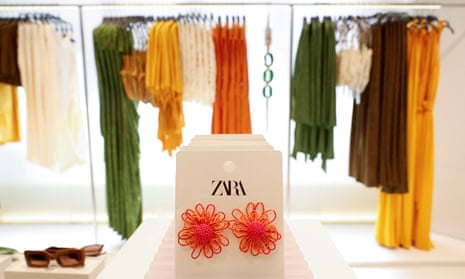The owner of Zara has revealed a 36% jump in sales this spring as shoppers flooded back to its high street outlets after the easing of Covid-19 restrictions.
Inditex, which also owns Pull&Bear, Massimo Dutti and Bershka, said total sales rose to €6.7bn in the three months to 30 April as there was a “significant rebound in traffic” to stores that offset a 6% decline online.
Pre-tax profits rose 82% to €990m (£846.2m) and it said spring and summer ranges had been well received by shoppers. However, the temporary closure of stores in Russia and Ukraine led to a €216m charge on the business during the quarter. The company has about 500 stores in Russia, its second-largest market in terms of shops.
The Spanish company said momentum had continued beyond April, with sales up 17% in the month to 5 June, well ahead of analysts’ expectations because it was now able to open 90% of its 6,423 stores worldwide. That sales growth came despite the group closing 335 stores in the past year.
Óscar García Maceiras, the chief executive of Inditex, told analysts he expected prices to rise by “mid-single digits” over the summer in markets affected by inflation. The group has also built up stocks of clothing to offset problems with global distribution networks.
Inditex’s strong figures stand in stark contrast to online fast fashion specialists such as Boohoo, Missguided and Asos, which have been hit by stumbling sales growth as pandemic restrictions on high streets eased.
Asos swung to a £15.8m pre-tax loss in the six months to the end of the February compared with a £106.4m profit a year earlier as sales in the UK grew by 8%.
Missguided has been bought out by the owner of Sports Direct after falling into administration as it struggled to cope with higher costs.
Boohoo’s pre-tax profits fell 94% to £7.8m in the year to 28 February. Sales rose 14% to almost £2bn but growth was down from more than 40% in the previous year.
Richard Chamberlain, a retail analyst at Royal Bank of Canada, said Inditex’s “high degree of [relatively local] sourcing, and its ability to offer fashion and newness to consumers in a downturn should allow its sales outperformance to widen in a recessionary environment”.










